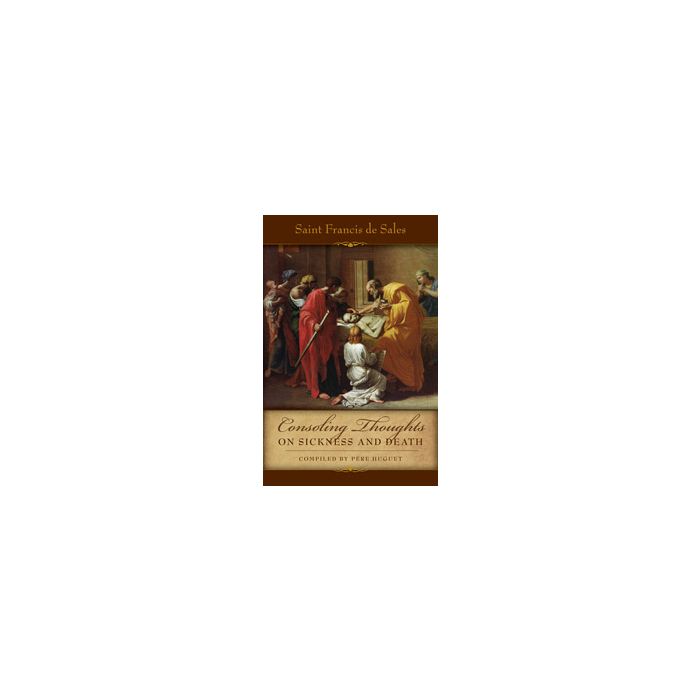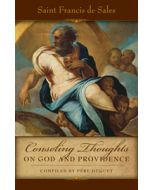Consoling Thoughts of St. Francis de Sales on Sickness and Death
| Author: de Sales, Francis | Year: 2013 |
| Publisher: Saint Benedict Press and Tan Boo | Pages: 128 |
| Binding: Paperback | |
| Code: 2371 | Series: Consoling Thoughts |
In Consoling Thoughts on Sickness and Death, St. Francis de Sales, the beloved Doctor of the Church, teaches how to grow closer to God through suffering well the most bitter trials.
The bed of sickness is an altar of sacrifice, writes the saint in this treasure of spirituality. He explains what prayers are suitable for the sick, how to persevere in patience, and even how to overcome an excessive fear of death. Most importantly, St. Francis de Sales teaches about abandonment to God's will in both life and death, drawing from his memories of the deaths of his own mother and sister.
Readers of Consoling Thoughts on Sickness and Death will experience firsthand why St. Francis de Sales (1567-1622) is known to history as the Gentle Saint. St. Francis was Bishop of Geneva and a tireless preacher, who yet made time to correspond with numerous souls who wrote him for his insight and guidance. His Consoling Thoughts are compiled from these letters as well as from his other spiritual works.
About The Author
| St. Francis de Sales was born in 1567 to Francois and Francoise de Boisy in what is currently Haute-Savoie, France. His father sent him to a good school when he was young, and he received spiritual formation from the Jesuits. After a disturbing spiritual fear of being condemned, he eventually resolved his problem and decided to dedicate his life to God in 1587. He became a doctor of law at the age of 24 at the Jesuit College of Clermont, Paris, and was ordained a priest by Bishop Claude de Granier and stationed in Geneva in 1593. He became bishop of Geneva in 1602. Francis de Sales is the author of various collections of sermons on Mary, Lent, prayer and Christmastide, as well as a work entitled Set Your Heart Free, edited by John Kirvan. He was known as a spiritually understanding man as well as a friend of the poor. Though known for his great intellect and theological wisdom, he spoke with simplicity and earnestness, so that all could understand. An Introduction to the Devout Life , his best-loved work, is based on notes he wrote for a cousin for marriage, stressing that sanctity is possible in everyday life. He died in 1622 on December 28, and was canonized by Pope Alexander VII in 1665. His feast is celebrated on January 24. |





